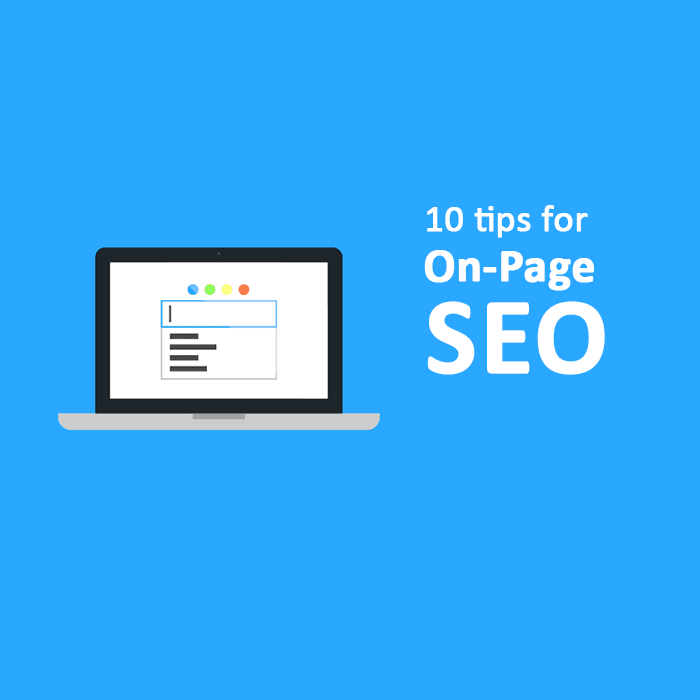Search Engine Optimization for a website can be done in two ways i.e. On-page and Off-page; on-page optimization implies to y change that you can do on your website in order to improve the ranking, whereas off-page SEO means to take actions on other websites that can help in improving your site’s ranking. This includes getting links from other websites, blogs, social media posts, and forums. Here, the objective is to list the top 10 tips that can improve the strategy for on-page SEO. Generally all SEO agencies consider the elements that contribute to the ranking of a website like content, images title and more are to be taken into account for better on-page SEO. The following are the suggestions to be considered significant:
- Pick right keywords
The basis of a website depends on the keywords you will be depending on. Phrases you think people will be typing while searching your business is all the game is about. Once you know the right keywords and know the related ones, make a list and use them as pillars for your website at least for the search engine ranking.
(See also: How to Write SEO-Friendly Content?)
- Optimize the content to post
While scanning your website, Google is very particular about the text you have added. Hence, any form of text on the page especially in the headers, make sure the phrases are appropriately chosen. The secret of maintaining a high-searchable keyword is that it should look and sound natural from the users’ perspective. If you are forcefully stuffing the content with keywords, Google won’t take time to get annoyed. So make sure you do it less but it has to be rightly done.
Add SEO-friendly URLs
To choose a name is tough and to choose a domain name is even tougher. You have to think twice about the users and Google’s bots as its the first thing about which Google doubts. Therefore, it’s better to know what suits you best and work on your domain name. Relevant keywords are important to be added to the URL as it becomes easy for the users to identify as well as for Google in ranking.
(See also: 10 Tips for SEO Beginners)
Use relatable keywords in meta tags
The next most important point that Google looks at after URL is a meta tag. The Meta tag is better known as title and description that appears in Google search results. They basically offer the users what they are looking for, and whether they are able to deliver what the visitors are expecting or not, is what they determine from meta tags. Although they are not visible on your website rather they can be seen on the result page. Writing something unique identifiable can fetch you more visitors with the right use of keywords.
‘Descriptive alt text’ to be a must add
Like we see images as an attractive source to communicate with others, Google is not at all concerned about it. Therefore, to make them count, you have to add descriptive alt, only then Google will consider the graphics relevant to your website. Again, unless the description doesn’t have appropriate keywords and business names you are talking about, it won’t be as effective as it has to be.
(See also: Smart Link Building Tips for 2017)
Internal Linking
A linking system where the users can navigate from different pages to your website is also an effective method for SEO. As a visitor clicks on different links to open different pages, you can use hyperlinks so that the users land to the contact page, product or store. These clickable links take the user to the desired pages, which is a great way to connect the right audience to the posts or products you want to promote.
Content should be shareable
If the content is rich in quality and yet is not being shared on Social media networks, it’s not something Google will take interest in. The only way to improve the frequency of shares is to add button on the website. Doing this enables the readers to read the blog or article on your website and allows them to share it on other social media networks.
(See also: 5 SEO Tools That You Must Use)
Make it mobile-friendly
According to the marketing experts, there has been a drastic shift in the medium of searches. Users are more inclined to search for mobile devices rather than desktop. In 2015, Google decided to give a bonus to mobile-friendly, which shows how quickly the users are changing their priorities. Hence, as a marketer, you must get your website mobile-optimised.
Include contact information
Unless the user is unaware of the ultimate thing you want them to reach, doing anything doesn’t make any sense. Adding your contact information is very important to localize your business and tome it identifiable across the web. To build credibility with Google, you have to mark your geographical area and attract more customers.
(See also: Do Social Signals Matter for SEO?)
URL submission
To gran the customer’s attention, firstly you need to make sure whether search engines like Google and Bing are showing any interest in it or not. If not, then you have to grab their attention by submitting your URL so as they scan your website. On a single click, you can get your site indexed by the search engine.

